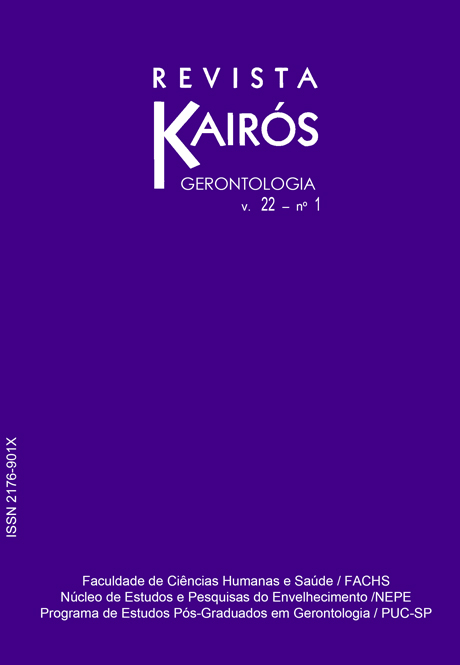Professional education, knowledge and beliefs of Primary Health Care physicians related to aging
DOI:
https://doi.org/10.23925/2176-901X.2019v22i1p329-352Keywords:
Physicians, Primary Care, Aged, Education Professional.Abstract
The increase in the elderly population, with the complex health problems that involve it, evidences the need to use Primary Health Care (APS), which should be the gateway to health care for the elderly. It is expected that the APS will carry out curative actions and, mainly, of prevention and health promotion in this age group. The objective of this study was to evaluate the professional training, basic knowledge and beliefs related to the area of aging, in 49 physicians who worked in APS of Anápolis, Goiás, Brazil. The following questionnaires were used: one to verify the professional training in the area of aging; the Palmore-Neri-Cachioni Questionnaire, in the evaluation of basic knowledge about old age; and the Neri Scale, to know the beliefs related to the elderly. The physicians showed lack of professional training and basic knowledge in the gerontological area. Among them, 22.4% did not attend Geriatrics / Gerontology discipline at graduation, 71.4% did not have any type of specialization and 91.8% did not obtain medical residency. In the last five years, only 38.8% participated in Geriatrics courses, 10.2% did research in the area and 59.2% read some article about aging. In the evaluation of basic knowledge about old age, the highest numbers of correct answers, 91.8% and 83,7%, have arisen in the two questions that deal with the physical aspects of aging. The issue that received fewer correct answers (6.1%) addresses the social aspect of aging and two issues dealing with psychological aspects had less than 20% of correct answers. As to the beliefs related to old age, the general tendency of the answers was negative. The domain with the most positive evaluation was Agency and the one with the most negative evaluation was Social Relationship. The item with the most positive belief was that of wisdom. It was concluded that continuous education of these professionals is necessary, focused on the different aspects of aging including the psychosocial, as well as the adoption of positive beliefs related to the elderly.


